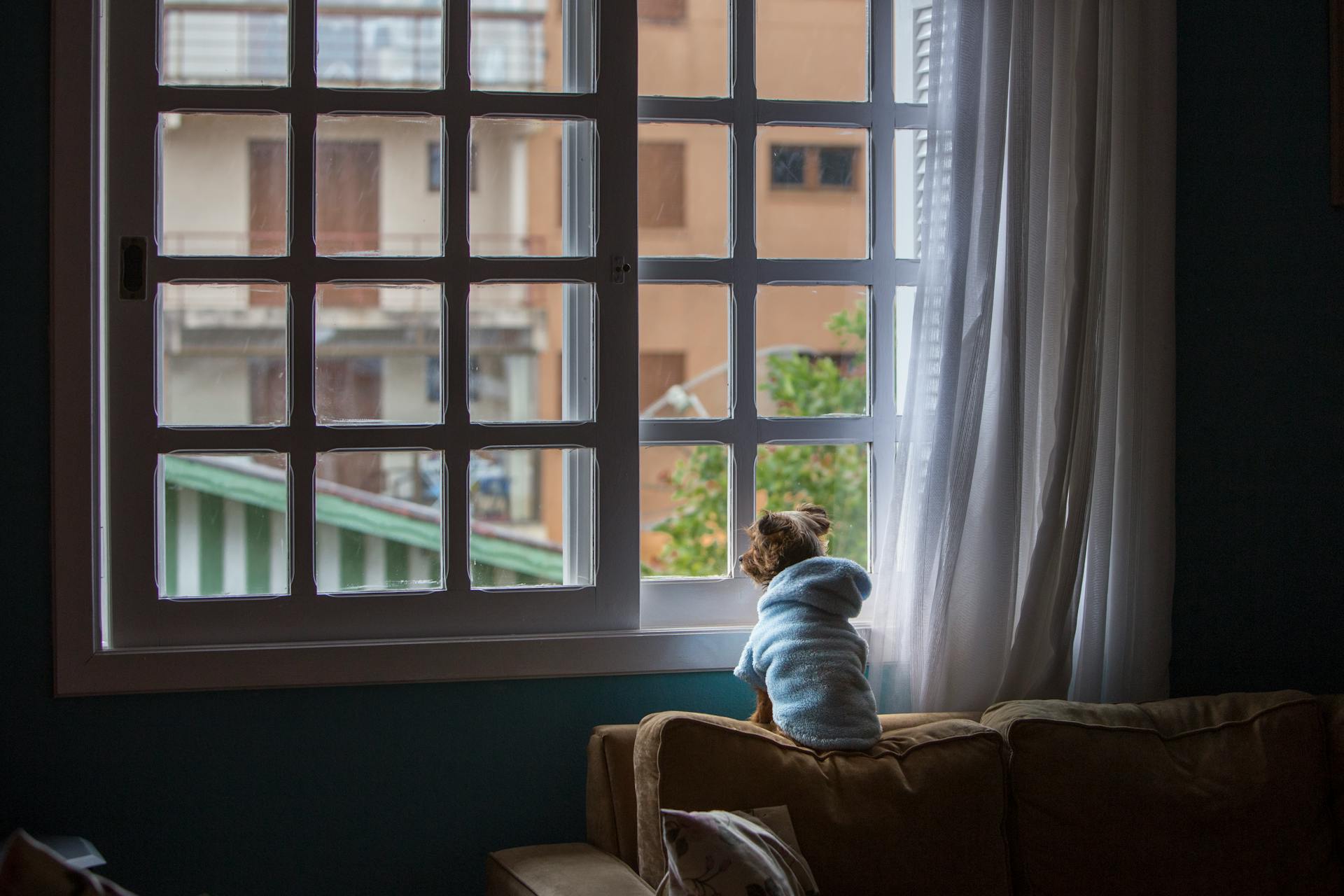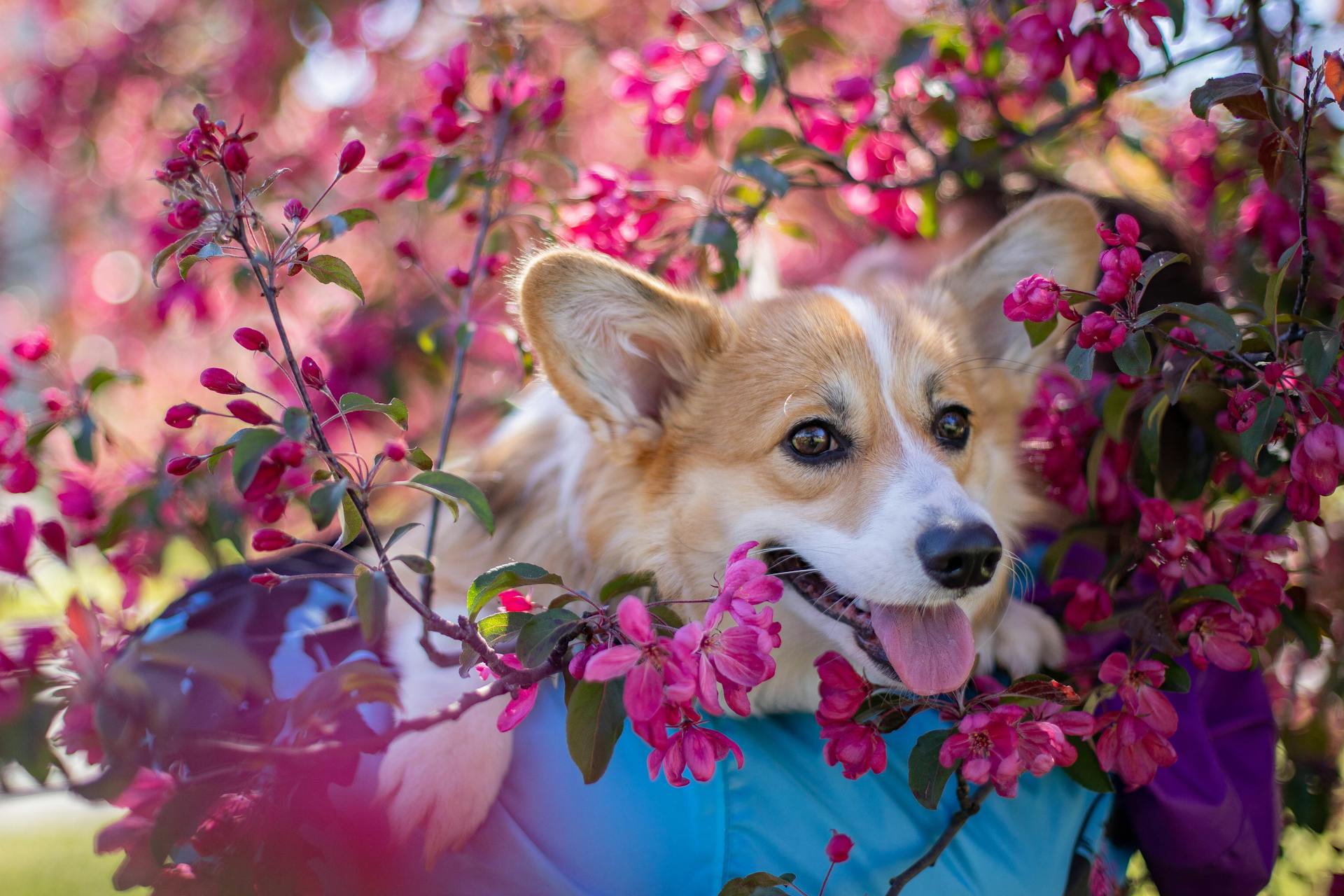
It's a common misconception that dogs want to be alone because they're antisocial. In reality, dogs are social creatures who need companionship, but there are a number of reasons why some dogs prefer to be alone. One reason may be that the dog is shy or anxious around other people and dogs. For a shy dog, being around other animals can be overwhelming and even scary. Additionally, some dogs have a low tolerance for stress and being around other animals can be too stressful for them. These dogs may need more time to relax and decompress in order to feel comfortable around others. Additionally, some dogs may simply prefer the company of humans to that of other dogs. These dogs may enjoy the one-on-one attention they receive from their human companions and may not find the same satisfaction from being around other dogs. Finally, some dogs may prefer to be alone because they have a higher energy level than other dogs and may find it difficult to find a compatible playmate. These dogs may do better with human companions who can provide them with the physical and mental stimulation they need.
Is my dog sad?
Dogs are known for their ability to form close bonds with humans, and this is often cited as one of the main reasons why people keep dogs as pets. However, it is also well-known that dogs are capable of experiencing a range of emotions, including sadness. So, is it possible that your dog is sad?
There are a number of signs that could indicate that your dog is sad. For instance, they may be less active than usual or they may lose interest in things that they used to enjoy. They may also sleep more, have a reduced appetite, or become more withdrawn. If you notice any of these changes in your dog's behavior, it is possible that they are sad.
Of course, it is important to remember that not all changes in behavior indicate that a dog is sad. Dogs can also experience changes in mood due to other factors, such as changes in the weather, being ill, or being in a new environment. Therefore, it is important to consider all of the potential factors before concluding that your dog is sad.
If you are unsure whether or not your dog is sad, it is always a good idea to consult with a veterinarian or animal behaviorist. They will be able to provide you with professional advice and help you to determine if your dog is sad or if there is another underlying cause for their changes in behavior.
On a similar theme: Male Dog Won't Leave Female Alone Not in Heat
Is my dog afraid of something?
There are many reasons why a dog might be afraid of something. It could be a traumatic experience, such as being attacked by another animal or being abused. It could also be a fear of the unknown, such as a fear of loud noises or unfamiliar people. Sometimes, a dog's fear is simply a result of genetics and cannot be helped.
If you think your dog is afraid of something, the best thing to do is to take them to the vet to rule out any medical causes for their fear. If the vet does not find any medical reason for the fear, then it is likely that your dog is experiencing a psychological fear.
There are a number of ways to help a dog who is afraid of something. The first step is to help them feel safe and secure. This can be done by providing them with a safe space, such as a crate or a room where they can go to feel safe. You should also avoid putting them in situations where they are likely to be frightened. For example, if your dog is afraid of loud noises, you should not take them to a fireworks display.
If your dog is afraid of something, it is important to be patient and understanding. It will take time for them to overcome their fear, but with your help, they can do it.
A different take: Vet Dogs Dog Treats
What can I do to help my dog feel better?
If your dog is unwell, there are a number of things you can do to help them feel better. First and foremost, it is important to consult your veterinarian and follow their recommendations. They will be able to determine the cause of your dog's illness and prescribe the best course of treatment.
In the meantime, there are a number of things you can do to make your dog more comfortable and ease their symptoms. If your dog is vomiting, for example, you can offer them small amounts of plain rice or boiled chicken as a bland diet. If they are having trouble drinking water, you can try giving them ice cubes or rub their belly in a clockwise direction to stimulate appetite.
If your dog is experiencing diarrhea, there are a few things you can do to help. First, be sure they are drinking plenty of fluids to prevent dehydration. You can also mix a little pumpkin puree into their food, as pumpkin is a natural source of fiber that can help to firm up stool. Finally, avoid giving your dog any table scraps or fatty foods, as these can aggravate diarrhea.
If your dog is coughing, there are a few things you can do to help them feel better. First, make sure they are drinking plenty of fluids to keep their throat lubricated. You can also try giving them a teaspoon of honey, as honey has natural antibacterial and anti-inflammatory properties. Finally, avoid giving your dog any chew toys or hard treats, as these can aggravate their cough.
No matter what the cause of your dog's illness, there are a number of things you can do to help them feel better. By following your veterinarian's recommendations and offering some simple home remedies, you can help your dog recover quickly and get back to their normal self in no time.
A fresh viewpoint: Food for Dogs with No Teeth
Should I take my dog to the vet?
There are a lot of things to consider when trying to answer the question, "Should I take my dog to the vet?" Some dog owners may feel that their dog is healthy and doesn't need to go to the vet unless they are sick or hurt. Other dog owners may feel that it is important to take their dog to the vet for regular checkups and preventive care, even if their dog seems healthy. Ultimately, the decision of whether or not to take your dog to the vet is up to you, but there are some things you may want to consider before making a decision.
One important factor to consider is your dog's age. Puppies and senior dogs are more likely to need frequent vet visits than adult dogs, for example. Puppies need to go to the vet for vaccinations and checkups, and senior dogs may need more frequent vet visits to monitor their health and look for signs of age-related diseases. If your dog is middle-aged and healthy, you may not need to take them to the vet as often, but it is still a good idea to have them checked out at least once a year.
Another factor to consider is your dog's breed. Some breeds are more prone to certain health problems than others, so you may want to take your dog to the vet more often if they are a high-risk breed. For example, breeds that are prone to hip dysplasia or other joint problems may need to be seen by a vet more often to ensure they are healthy and to catch any problems early.
Finally, you should also consider your own personal circumstances. If you are worried about your dog's health or if you think they may be sick or injured, it is always best to err on the side of caution and take them to the vet. Even if it turns out that there is nothing wrong, it is better to be safe than sorry. If you are unsure whether or not you should take your dog to the vet, you can always call and speak to a vet or another pet professional for advice.
If this caught your attention, see: I Want to Breed My Female Dog
What could be causing my dog to want to be alone?
There are many potential causes for a dog to want to be alone. It could be that the dog is not feeling well and is therefore seeking a quiet place to rest. It could also be that the dog is feeling anxious or stressed and is looking for a safe place to relax. Additionally, the dog may simply prefer to be alone and may not enjoy the company of other dogs or people. If your dog typically enjoys being around other dogs and people but suddenly seems to want to be alone, it is important to consult with your veterinarian to rule out any medical causes. If your dog is healthy but still prefers to be alone, you may need to provide additional opportunities for the dog to get exercise and stimulation, such as increased walks, playtime, and training. You may also need to adjust your expectations and allow the dog to have more alone time.
A fresh viewpoint: Why Do You Want to Adopt a Dog?
Is there anything I can do to prevent my dog from wanting to be alone?
There is no one definitive answer to this question. Some factors that can contribute to a dog's propensity to want to be alone include: genetics, early life experiences, health and age. Additionally, there are various things that can be done to help a dog feel less isolated and more content in their day-to-day lives.
Some dogs are simply more independent by nature and do not require as much attention and interaction as others. This is often due to genetics and cannot be changed. However, early life experiences can play a role in shaping a dog's personality and socialization skills. Dogs that have not been properly socialized or have had negative experiences with other dogs or people may be more likely to want to be alone.
Health and age can also be factors in a dog's desire for alone time. Older dogs may become less social as they age and may prefer to spend more time alone. Additionally, dogs with certain health conditions may also want to be alone more often.
There are various things that can be done to help a dog feel less isolated and more content in their day-to-day lives. Providing plenty of toys, bones and chew toys can help to keep a dog occupied and distracted from their loneliness. Adding another pet to the household can also help, as long as the two animals get along well. Finally, spending quality time with your dog on a daily basis through walks, playtime and training can help to create a stronger bond and make them feel less alone.
What are the long-term effects of my dog wanting to be alone?
There are a number of potential long-term effects of your dog wanting to be alone. If your dog is left alone frequently, they may become anxious or depressed. This can lead to a decrease in appetite and weight loss, as well as a decrease in energy levels and interest in activities. Additionally, your dog may start to display behavioral problems, such as excessive barking, chewing, or digging. If your dog is left alone too often, they may also become aggressive.
Additionally, while your dog may initially enjoy being left alone, over time they may come to dislike it. This can lead to your dog feeling stressed and anxious when they are left alone, and they may start to associate being alone with negative experiences. This can lead to your dog becoming fearful or reactive when left alone, and they may start to exhibit signs of separation anxiety.
Overall, the long-term effects of your dog wanting to be alone can be negative. If you are concerned about your dog's behavior, it is important to consult with a veterinarian or professional dog trainer to help you create a plan to address your dog's needs.
Take a look at this: Food Alternatives for Dogs
What are some possible solutions to my dog wanting to be alone?
There are a number of possible solutions to a dog wanting to be alone. One solution is to provide the dog with more socialization opportunities. This can be done by taking the dog to dog parks, dog daycare, or obedience classes. Another solution is to give the dog more attention and exercise. This can be done by playing with the dog more often and taking the dog on longer walks or runs. Lastly, it is important to consult with a veterinarian or animal behaviorist to rule out any underlying health or behavioral issues that may be causing the dog to want to be alone.
Frequently Asked Questions
Why does my dog want to be alone all of a sudden?
There can be many reasons why a dog might suddenly want to be left alone, from feeling anxious or insecure due to changes in their environment (like you going on vacation), to underlying health issues like age or illness. If you're not sure what's causing your dog's behavior, it's best to consult a vet.
Why is my dog is isolating themselves?
There are many reasons why a dog may start to isolate themselves. The most common reasons include anxiety or depression, but there can also be other reasons such as:
Do dogs like to be left alone?
It depends on your dog. Some dogs like to be left alone, while others may need some company. It's important to observe your dog and see how they react when you're not around. If your pooch seems anxious or withdrawn, it may be a good idea to rethink leaving them alone.
Why does my dog want to sleep alone at night?
Dogs are pack animals and have evolved to need a sense of separateness from their human family during sleep. In the wild, wolves will commonly sleep in packs of 3-6 members and dogs instinctively mimic this behavior by sleeping near or with their humans. Sleep deprivation can lead to increased anxiety, so allowing your dog some extra ‘alone time’ helps them feel rested and secure.
Why is my dog SAD all the time?
SAD (seasonal affective disorder) is a problem that affects dogs during the wintertime when there is less light. Dogs with SAD have a decreased production of serotonin, which can result in depression, anxiety, and other problems.
Sources
- https://mrkspetshelter.org/you-asked-why-does-my-dog-want-to-be-alone/
- https://petdogowner.com/why-does-my-dog-want-to-be-alone/
- https://www.thewildest.com/dog-behavior/how-stop-your-dogs-scavenging
- https://petcube.com/blog/stop-dog-chewing/
- http://minus.dixiesewing.com/what-can-i-do-to-make-my-senior-dog-feel-better
- https://www.avidpup.com/dog-suddenly-scared-of-something-in-house/
- https://myanimals.com/health/care-and-well-being/tips/tips-help-dog-get-used-alone/
- https://dogsandclogs.com/why-is-my-dog-sad-suddenly/
- https://simplyfordogs.com/dogs-think-feel-reason/
- https://www.thedrakecenter.com/services/dogs/blog/separation-anxiety-how-ease-your-dogs-fears-being-alone
- https://www.dogsnaturallymagazine.com/remedies-to-help-your-dog-pass-comfortably/
- https://mrkspetshelter.org/should-i-bring-my-dog-to-the-vet-for-kennel-cough/
- https://www.sfgate.com/pets/askthevet/article/Dog-seems-to-be-saying-I-want-to-be-alone-2401007.php
- https://topdogtips.com/dangers-leaving-dog-home-alone/
Featured Images: pexels.com


